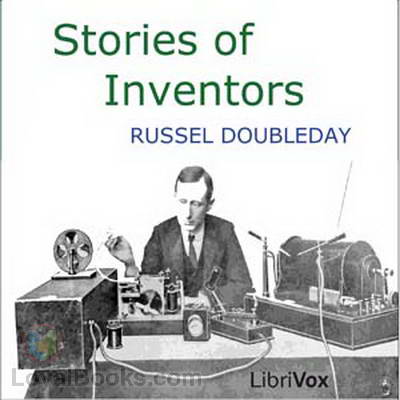
By: Russel Doubleday (1872-1949)
"Stories of Inventors" by Russel Doubleday is an inspiring collection of biographies about some of the world's greatest inventors. From Thomas Edison to Alexander Graham Bell, the book showcases the incredible determination and creativity that led these individuals to make groundbreaking discoveries and inventions.
Doubleday's writing style is engaging and easy to follow, making this book accessible to readers of all ages. Each chapter delves into the personal and professional lives of the inventors, providing insight into their motivations and struggles. The book also highlights the impact these inventors had on society, demonstrating the importance of innovation in shaping the world we live in today.
Overall, "Stories of Inventors" is a captivating read that celebrates the ingenuity and perseverance of individuals who pushed the boundaries of what was thought possible. It serves as a reminder of the power of human creativity and the transformative potential of inventions. Highly recommended for anyone interested in history, science, or the power of human invention. Book Description:
Doubleday chronicles the history of everyday inventions that form the foundation of technology now common through the world. While some of the inventions are no longer used, each example shows how inventors contributed to technology through perseverance, inspiration and clever observations. In each chapter, he gives a clear, understandable background of the technology.
Many of the now outdated inventions may have inspired later inventions by meeting emerging demands. For example, Edison's filament bulb is now being phased out by more efficient CFL's, but Edison's contribution to indoor lighting likewise removed the need for inefficient gas-burning lamps. While trains for carrying mail and freight have largely been replaced by more nimble semi trailers, one example shows how technology can translate from ground to air travel. Trains with curved pipes that scooped water to refill reservoirs could be controlled from the train engine-cab without stopping, and mirrors the in-flight refueling systems that keep aircraft flying without the need to land. Although computers have replaced typewriters, word processing programs and web browsers justify text with similar algorithms.
|